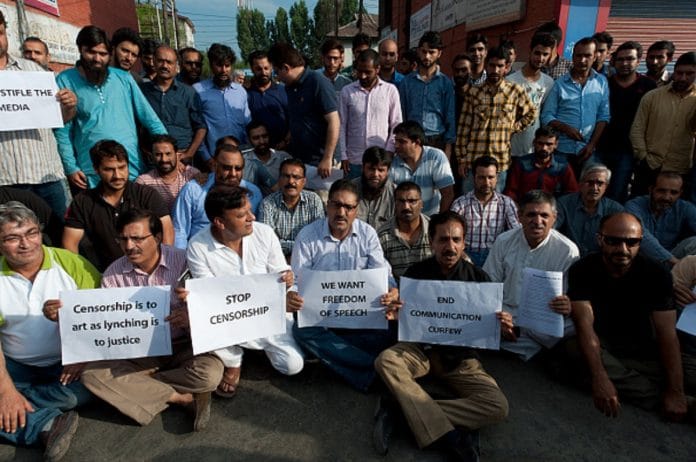Historically, the imposing of restrictions on the right of citizens to freedom of speech and expression in the Constitution was neither inevitable nor unopposed.
The Constitution of India promises the right to freedom of speech and expression to all citizens in Article 19(1)(a); guarantees the right to approach the Supreme Court to enforce this right in Article 32; and declares that all colonial laws inconsistent with the right shall be invalid in Article 13(1).
Yet, 67 years into the Republic, there remain on the statute book a number of laws criminalising speech that are of colonial origin.
The most infamous is probably sedition that had been inserted into the Indian Penal Code as section 124-A nearly 150 years ago in 1870. It was denounced before Independence as “perhaps the prince among the political sections of the Indian Penal Code designed to suppress the liberty of the citizen” by Mohandas Karamchand Gandhi, and after independence as “highly objectionable and obnoxious” by Jawaharlal Nehru. But sedition was used to arrest seventy-three people in 2015, according to the latest report of the National Crime Records Bureau.
If colonial laws criminalising speech such as sedition can still be used to arrest citizens, despite Article 19(1)(a), then one is forced to ask: is the right to freedom of speech and expression illusory?
It is illusory, contended Hukam Singh in the Constituent Assembly on 1 December, 1948, a year before the Assembly would adopt the Constitution on 26 November, 1949, now celebrated as Constitution Day.
Singh was trying to convince fellow members of the Assembly to delete the restrictions on the right to freedom of speech and expression, now found in Article 19(2) of the Constitution. He pointed out that the restrictions would reduce the role of the Supreme Court to merely determining whether a law, whose constitutionality was being challenged before it, is related to one of the restrictions. If the law were found to be so related, then the Court, he said, “would be bound to come to a finding that it is valid.”
That was because the restrictions, Singh continued, had “been so worded as to remove from the Supreme Court its competence to consider and determine whether in fact there were circumstances justifying” the law.
Singh, a former judge of the Kapurthala High Court in Punjab, went on to become the Speaker of the Lok Sabha. And subsequent judgements of the Supreme Court have proved him right.
No colonial law criminalising speech, except one, has been struck down by the apex court since 1950. And the laws that have thus been declared constitutional include five sections of the colonial Indian Penal Code, among them sedition.
In fact, the Supreme Court admitted as much in its judgement on the constitutionality of sedition, writing, “There can be no doubt that apart from the provisions of (2) of art. 19,” sedition is “clearly violative of Article 19(1)(a) of the Constitution.”
But, as Singh had predicted, the Court said that what it had to determine was “how far the saving clause, namely, clause (2) of Article 19 protects the sections” challenged. In other words – to quote another judgement of the Supreme Court – “the real fundamental right is what is left after the restriction has been imposed.”
But, what is left over was already available to citizens even as colonial subjects of the British Empire, wasn’t it? Not codified as a constitutional right, of course, but available nevertheless, if only as an inchoate space for speech not yet brought within the ambit of colonial law.
And if so, then one has to wonder, as Hukam Singh did in 1948 itself, “where is the change ushered in and so loudly talked of?”
Since then, though, few seem to have pondered this question, and certainly not anyone in Parliament. In fact, since the Constituent Assembly, there has been no visible attempt to repeal the restrictions of Article 19(2) in Parliament, although there have been two successful attempts to expand them there, one in 1951 and the other in 1963, both ironically in the prime ministership of Nehru, who had wanted to “get rid of” sedition. Even the National Commission to Review the Working of the Constitution, which the government set up in 2000, recommended further expanding the restrictions.
Surprisingly, human rights organisations appear to have ignored this question as well. Both Amnesty International and Human Rights Watch, for instance, have called for the repeal of sedition. But, neither have questioned the restrictions of Article 19(2) that allow sedition, and other colonial laws criminalising speech, to survive.
That is why returning to the Constituent Assembly and recovering long forgotten voices like Hukam Singh’s is necessary. If nothing else, it reminds citizens that the imposition of restrictions on their right to freedom of speech and expression in the Constitution itself was neither inevitable nor unopposed.
An unrestricted right may not have been an idea whose time had come then, but it could be an idea whose time can be made to come now.
Srijan Sandip Mandal is Faculty, Center for Public History, Srishti Institute of Art, Design and Technology, Bengaluru






